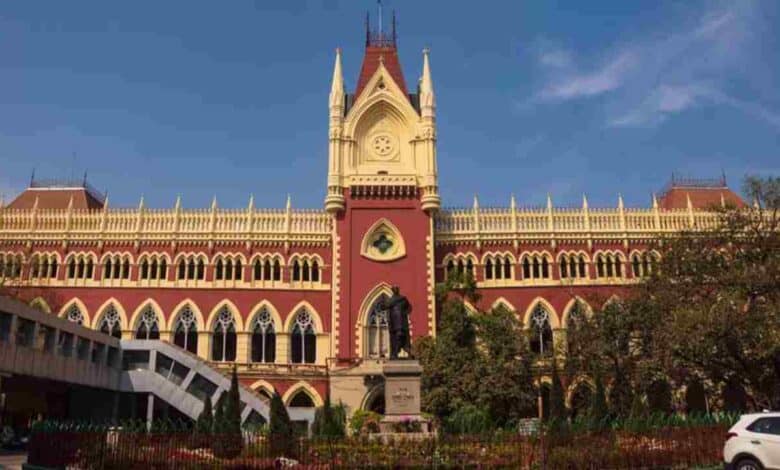Calcutta High Court Puts West Bengal's New OBC List on Hold: What It Means for 140 Communities?
The Calcutta High Court has recently issued an interim stay on West Bengal's revised list of Other Backward Classes (OBCs), a move that has significant implications for approximately 140 communities in the state. This legal development plunges the future of reservation benefits for these groups into uncertainty, particularly affecting educational admissions and government job recruitments. The court's decision highlights ongoing legal scrutiny regarding the criteria and process for OBC classification.(toc)
The Genesis of the Legal Dispute
The current legal tussle stems from a May 2024 ruling by the Calcutta High Court, which invalidated the OBC status of 77 communities, predominantly Muslim, that had been granted reservation benefits since 2010. The High Court had then criticized the state's classification process, deeming it illegal and suggesting that religion, rather than socio-economic backwardness, appeared to be the primary criterion for their inclusion. This earlier judgment had already put a significant number of existing OBC certificates and ongoing recruitment processes in limbo.
In response to this, the West Bengal government had recently introduced a new OBC list, which included 140 subgroups, with a notable increase in Muslim representation. This revised list was tabled in the state assembly with the aim of restoring the 17% OBC reservation quota. However, this new list immediately faced fresh legal challenges, leading to the latest interim stay by the Calcutta High Court.
Court's Scrutiny and Concerns
The core of the Calcutta High Court's current stay order revolves around the perceived procedural irregularities and the lack of a comprehensive survey in classifying these 140 communities. Petitioners argued that the West Bengal Commission for Backward Classes had not adhered to established guidelines for determining OBC inclusion, specifically in conducting a thorough and transparent survey of the entire population. They highlighted that a previous High Court division bench order had mandated a "fair, transparent, and just" procedure, which, according to petitioners, was not followed.
The court is particularly keen to examine the sanctity of the process used to arrive at the new list and verify if these communities are indeed appropriately represented as backward classes in the state. The legal proceedings also touched upon a Supreme Court judgment (Indra Sawhney vs Union of India), which emphasizes the need for a comprehensive survey to determine backwardness.
Impact on Affected Communities and State Operations
The interim stay creates immediate challenges for thousands of individuals seeking to avail reservation benefits for education and employment. Admissions to colleges and universities, as well as state government recruitments under the OBC category, face renewed disruptions. While the state government argued for the urgency of these processes, citing pending admissions and recruitments, the court's priority remains ensuring the legal and constitutional validity of the classification.
The state government has indicated that it is undertaking a fresh survey of backward classes, a process that is expected to be completed within a few months. The outcome of this survey and subsequent legal hearings in the Supreme Court, where the West Bengal government has also challenged the High Court's earlier ruling, will ultimately determine the future of these communities' reservation status.
The Path Forward: Legal and Social Implications
The ongoing legal battle underscores the complex interplay between affirmative action policies, constitutional principles, and political considerations. The Calcutta High Court's consistent emphasis on quantifiable data and a transparent classification process aims to ensure that reservation benefits genuinely reach the most deserving backward classes, without succumbing to any form of "vote bank" politics.
As the matter progresses, all eyes will be on the Supreme Court's pronouncements and the West Bengal government's revised survey. The final resolution will not only impact the lives of countless individuals but also set crucial precedents for OBC classification and reservation policies across the nation.
For those affected, staying informed about the legal developments and understanding the criteria for OBC status will be vital. The journey towards a definitive resolution for the 140 communities in West Bengal remains uncertain, but the judiciary's role in upholding the integrity of the reservation system is clear.
FAQs
Q1: What is the primary reason for the Calcutta High Court's interim stay on the new OBC list? A1: The interim stay was primarily issued due to concerns over procedural irregularities, lack of a comprehensive survey, and questions regarding the transparency and adherence to established guidelines in classifying the 140 communities as OBCs.
Q2: How many communities are directly affected by this ruling? A2: The ruling directly affects approximately 140 communities that were included in the West Bengal government's new OBC list.
Q3: What does this interim stay mean for individuals seeking jobs or admissions under the OBC quota? A3: The interim stay has created uncertainty and disruptions for individuals seeking to apply for government jobs or secure admissions in educational institutions under the OBC quota, as the new list's validity is currently on hold.
Q4: What is the next step in this legal process? A4: The West Bengal government is undertaking a fresh survey to re-evaluate backwardness criteria, and the matter is also being heard by the Supreme Court, which will ultimately decide on the validity of the classification process and the new OBC list.
Stay updated on the latest legal developments concerning OBC reservations in West Bengal by following BytesToday.in for comprehensive analysis and news.



